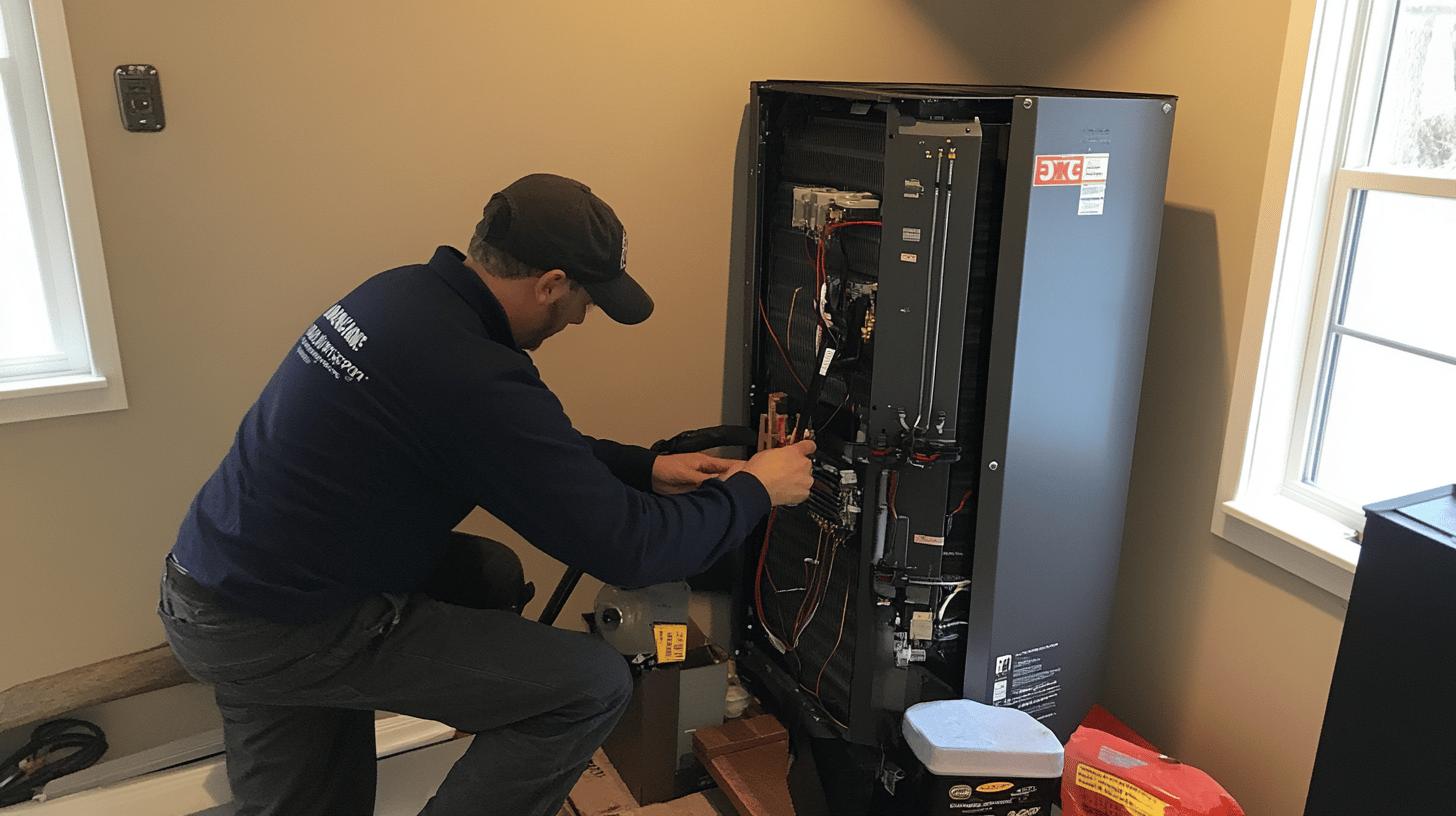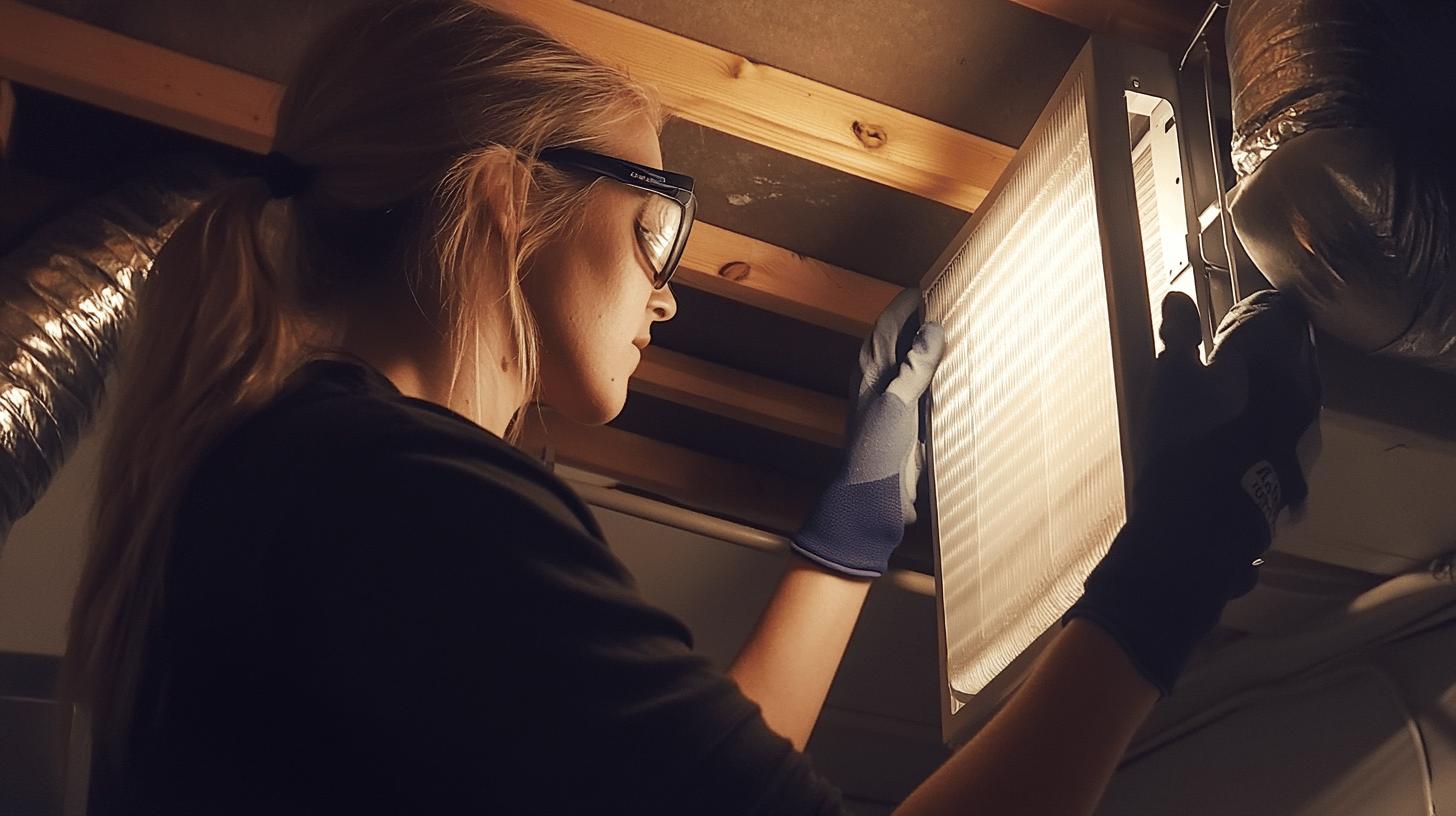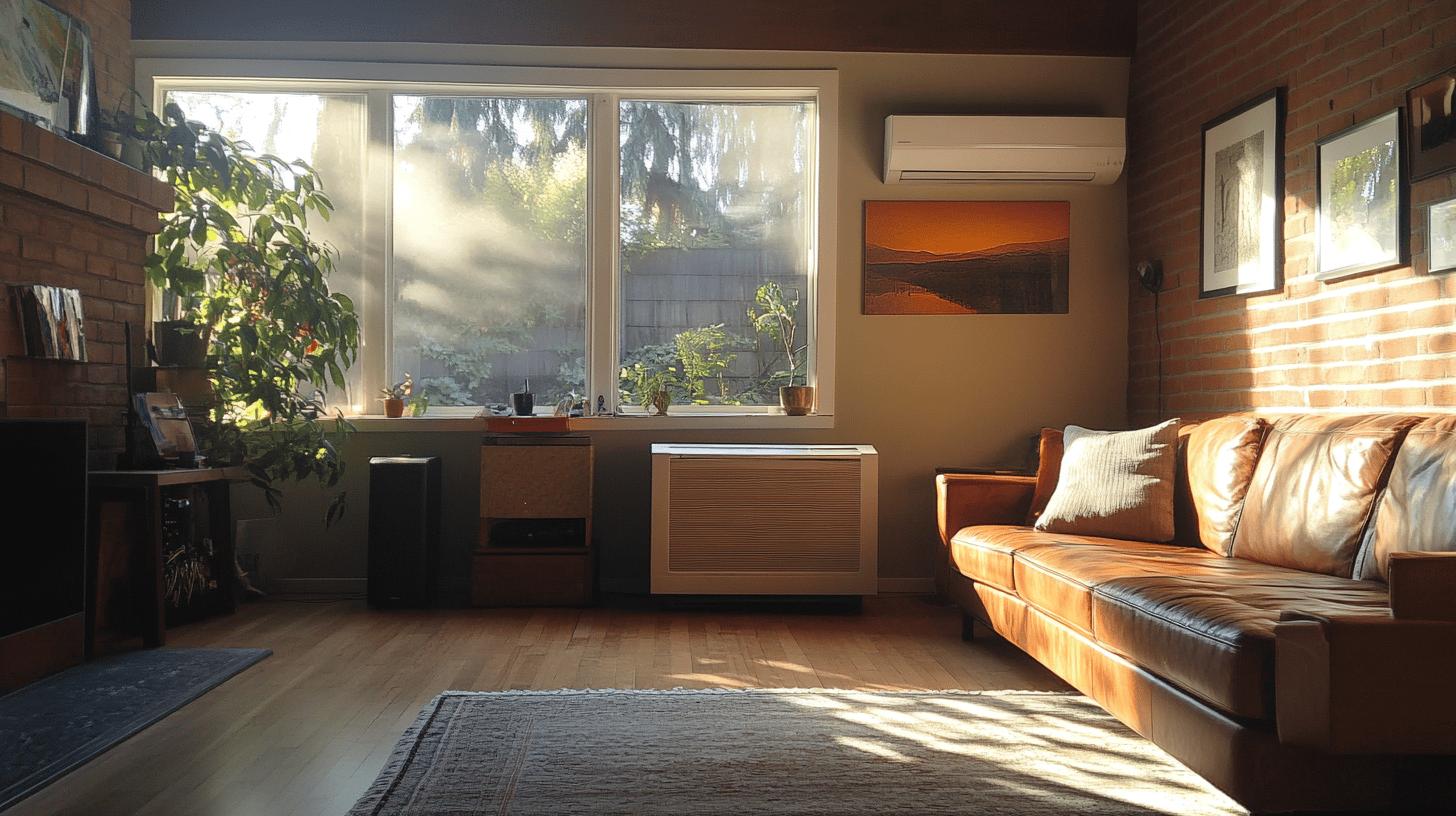TL;DR:
- HVAC: Stands for Heating, Ventilation, and Air Conditioning for indoor comfort.
- Types:
- Split Systems: $2,500 – $7,500
- Duct-Free Systems: $3,000 – $10,000
- Packaged Systems: $3,000 – $8,000
- Key Components: Heat pumps (heating/cooling), furnaces (heating), air conditioners (cooling).
- Cost Influencers: Type, installation complexity, and home size.
- Maintenance Tips: Replace filters (1-3 months), clean coils (annually), check refrigerant, inspect ductwork, and calibrate thermostats.
- Innovations: Smart thermostats, variable-speed compressors, inverter technology, integrated air purifiers for efficiency and comfort.
Did you know that picking the right HVAC system can make a big difference in how comfortable your home feels and how much you spend on energy bills? There are a lot of options—like split systems, duct-free setups, and packaged units—and it can get confusing. Each type works differently to control temperature, ventilation, and air conditioning. In this article, we’ll break down how these systems work, help you choose the best one for your home, and share maintenance tips to save you money and keep your family comfy all year long.
Understanding HVAC Systems for Home Use
HVAC stands for Heating, Ventilation, and Air Conditioning. These systems help keep your home comfy and the air clean. They manage the temperature and airflow, making sure your space feels good and stays healthy all year round.
-
Split Systems: The most common type, featuring both indoor and outdoor units. They’re known for efficient heating and cooling.
-
Duct-Free Systems: Also called mini-splits, ideal for homes without ducts. They allow precise temperature control in each room.
-
Hybrid Systems: These systems use both gas and electricity. They switch between the two to save energy and cut costs.
- Packaged Systems: All components are in a single outdoor unit, perfect for homes with limited space.
HVAC systems have three main parts: heat pumps, furnaces, and air conditioners. Heat pumps handle both heating and cooling by moving heat in or out of your home. Furnaces focus on heating by burning fuel to create warmth. Air conditioners cool the air and often work with heat pumps to keep things comfortable. Together, they make your home cozy and energy-efficient.
Choosing the Best HVAC System for Your Home

Choosing the right HVAC system is key to staying comfortable, saving energy, and cutting costs. The right system will keep your home warm in the winter and cool in the summer.
Home Size and Climate
The size of your home plays a big role in the HVAC system you need. Bigger homes need systems with enough power to heat and cool evenly. Your local climate matters too—places with extreme weather might do better with heat pumps or efficient furnaces that can handle the conditions.
Energy Efficiency Features
Energy-efficient HVAC systems help you save money on bills while staying comfortable. Modern units with smart thermostats and variable-speed features adjust settings automatically to keep temperatures steady. This not only saves energy but also reduces your environmental impact.
Professional Installation
Proper installation is crucial for your HVAC system to work its best. A bad installation can waste energy and wear out the system faster. Pros make sure it’s the right fit for your home, so you get the most comfort and efficiency.
In short, think about your home size, climate, and energy efficiency when picking an HVAC system. Professional installation makes sure it’s efficient, lasts long, and keeps your home comfy while saving money.
Cost Analysis of Home HVAC Systems
HVAC system costs depend on several factors, like the type of system, installation difficulty, and your home’s size. Split systems, for example, cost more because they need both indoor and outdoor units. Complex installations, such as adding ductwork, can add $2,000–$3,000 to the bill. Larger homes also need more powerful systems, which raises the price. All these factors help determine your budget for an efficient system that fits your needs.
| System Type | Typical Cost Range |
|———————|———————–|
| Split Systems | $2,500 – $7,500 |
| Duct-Free Systems | $3,000 – $10,000 |
| Packaged Systems | $3,000 – $8,000 |
Tax credits and rebates can help cut HVAC costs, especially for energy-efficient models. These incentives make it more affordable to upgrade to a better system. They lower upfront expenses while promoting energy savings in the long run, benefiting both your wallet and the environment.
Maintenance and Troubleshooting Tips for Home HVAC Systems

Regular maintenance is key to keeping your HVAC system running efficiently and lasting longer. Sticking to a maintenance schedule helps prevent expensive repairs and keeps everything working smoothly.
-
Filter Replacement: Change air filters every 1-3 months to maintain airflow and air quality.
-
Coil Cleaning: Clean coils annually to prevent strain and uphold cooling efficiency.
-
Checking Refrigerant Levels: Keep refrigerant levels adequate to avoid inefficiency and damage.
-
Inspecting Ductwork: Regularly seal ductwork to prevent leaks, saving energy and ensuring even temperatures.
-
Thermostat Calibration: Calibrate your thermostat for accurate readings and efficient operation.
Common Troubleshooting Issues
Common issues with HVAC systems, like poor airflow, are often caused by clogged filters. Simply replacing the filters and clearing blockages can fix this. Refrigerant leaks, which affect cooling and can cause damage, need professional repairs. Thermostat problems may require recalibration or replacement.
Hiring professionals for maintenance is a smart move. They can catch issues early, ensuring your system runs efficiently. Their expertise helps keep everything in top condition, giving you peace of mind.
Energy Efficiency and Innovations in Home HVAC Systems
Energy efficiency is key in HVAC design, reducing consumption while maximizing comfort. Advanced technologies make these systems eco-friendly and cost-effective.
-
Smart Thermostats: Allow precise control and scheduling, reducing energy use when not needed.
-
Variable-Speed Compressors: Adapt output to the current need, improving efficiency and comfort.
-
Inverter Technology: Provides smooth operation, enhancing system longevity and efficiency.
- Integrated Air Purifiers: Combine purification with heating and cooling for better air quality.
These innovations keep your home comfortable by maintaining stable temperatures and improving air quality. Smart thermostats and variable-speed technology offer consistent climate control, reducing the need for constant adjustments. This not only increases comfort but can also lead to big savings. Energy-efficient systems cut down on utility bills, making them a smart investment for both comfort and efficiency.
Final Words
Understanding the details of a residential HVAC system can make a big difference in your home’s comfort and energy use. You’ve learned about different system types and their components, providing plenty of options for various needs. To choose the best system for your home, you need to consider factors like size and climate.
Knowing the costs and taking advantage of tax incentives makes it easier to afford energy-efficient systems. Regular maintenance helps your system last longer and run smoothly, while energy-saving features improve comfort and reduce costs. With this knowledge, selecting and maintaining the right HVAC system is a manageable task for any homeowner.
FAQ
What is the typical cost to replace an HVAC system?
Replacing an HVAC system typically costs between $4,500 and $7,000, depending on the system type and installation complexity. This price can increase if ductwork needs to be added or replaced.
What size HVAC do I need for a 2000 sq ft house?
For a 2000 sq ft house, you generally need a 3 to 3.5-ton HVAC system, but this can vary based on climate and insulation levels. A professional load calculation is recommended for precise sizing.
What is an HVAC system in a home?
An HVAC system in a home regulates indoor temperature, ventilation, and air conditioning, comprising components like heat pumps, furnaces, and air conditioners to maintain comfort throughout the year.
What is the most reliable HVAC system?
The most reliable HVAC systems are typically those from well-established brands like Carrier, Trane, and Lennox. These brands offer systems that are known for durability, energy efficiency, and excellent warranty options.

